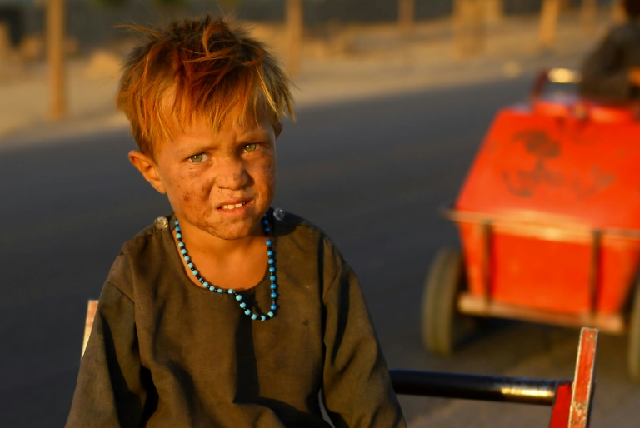
Such is the lot of many a child in Afghanistan, which this week passes another sombre milestone. On Monday, the conflict turned 18, meaning every single Afghan child now has known only war.
"Peace is like a dream to us in Afghanistan," said Mohammad Mobin, a 17-year-old Kabul high schooler. "Afghanistan can develop only if we have peace."
On October 7, 2001, the United States launched airstrikes against Afghanistan, following the September 11 attacks conducted by Al-Qaeda that killed nearly 3,000 people in the US.
The Taliban, who had refused to hand over al Qaeda leader Osama bin Laden, were toppled within weeks, but the ensuing insurgent conflict has dragged on ever since and become the longest war in US history.
Burning love: Afghan Elvis's legacy endures, decades after death
Violence has only worsened in recent years, disproportionately impacting children.
"Since we were born, we have had no peace in our country, it has only been fighting and conflict," said Sayed Ibrahim, an 18-year-old medical student in Kabul.
The UN published a report last week saying that from 2015 to 2018, researchers studying the plight of Afghan kids documented more than 14,000 grave violations against them throughout the country, marking a sharp increase from the previous four years.
"Imagine turning 18 having known nothing but conflict and war throughout your entire childhood and formative years," said Onno van Manen, country director for Save the Children in Afghanistan.
"Life in Afghanistan means living in daily fear of explosions, missing school because it's too unsafe and not knowing if your parents or siblings will make it home."
The UN Children's Fund (UNICEF) says the number of attacks against Afghan schools tripled last year compared to 2017. By the end of 2018, more than 1,000 Afghan schools had been shut due to conflict.
"I don't study because I have no money, I have to make money to support my family," said Sabir, an 11-year-old boy who fled his home province of Ghazni to sell peanuts, sunflower seeds and dried fruits in central Kabul.
"We have to go to school and get an education. We can end fighting through education."
The 2001 invasion did herald some enduring improvements for many young Afghans - particularly girls, who had been banned from receiving an education under the Taliban.
In Kabul and other urban centres, schools and universities flourished, and an entire generation of children now has never known Taliban rule.
But the economy remains so weak that poorer families often yank their kids from school and send them to hustle for extra cash on dangerous streets.
Elections in Afghanistan: good omen for peace
Jobs for many youths are so scarce they have few options but to try to emigrate, or join the Taliban or other insurgent groups who pay a regular wage.
During a recent visit to a busy park in downtown Kabul, nine-year-old Niyamathullah told AFP he would do anything for work - sell gum, wash cars, run errands.
Hameedullah, the 13-year-old shoe shiner, said he would have stayed in school but needed to raise money for his family.
"There is no peace, the fighting is ongoing, there are no proper jobs for us," he said.
"I would like to go to school, get an education and work for my country."
According to the UN Population Fund, 42 per cent of Afghanistan's population is aged under 14. UNICEF says more than 3.7 million children are currently out of school - most of them girls.
The US and the Taliban had spent the past year negotiating a deal that could have led to talks between the militants and the Afghan government - and an eventual ceasefire - but President Donald Trump scuttled the agreement at the last moment, citing concerns over Taliban violence.
The Taliban released a statement on Monday to mark the October 7 anniversary, saying America had been "brought down to its knees in Afghanistan".
The date "should be another reminder for all the enemies of Afghanistan that no one can ever forcefully subdue Afghans and take their sovereignty and independence," the Taliban wrote.





1730884134-0/BeFunky-collage-(26)1730884134-0-270x192.webp)




1732618327-2/Untitled-design-(7)1732618327-2-270x192.webp)






COMMENTS
Comments are moderated and generally will be posted if they are on-topic and not abusive.
For more information, please see our Comments FAQ